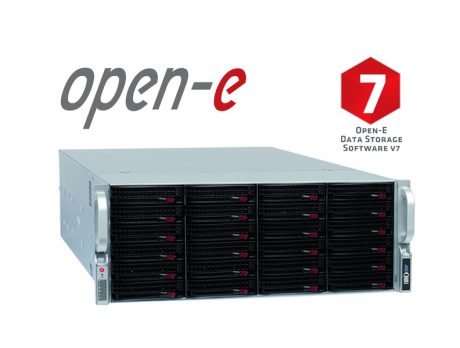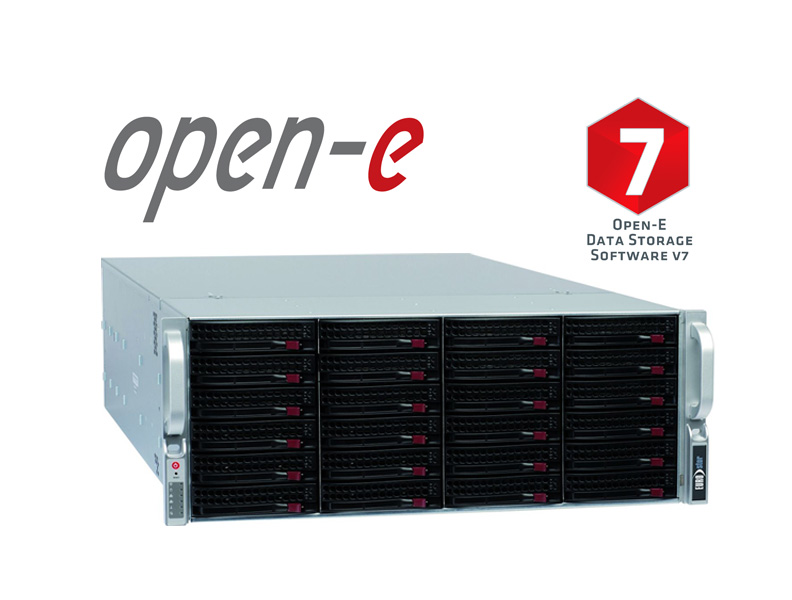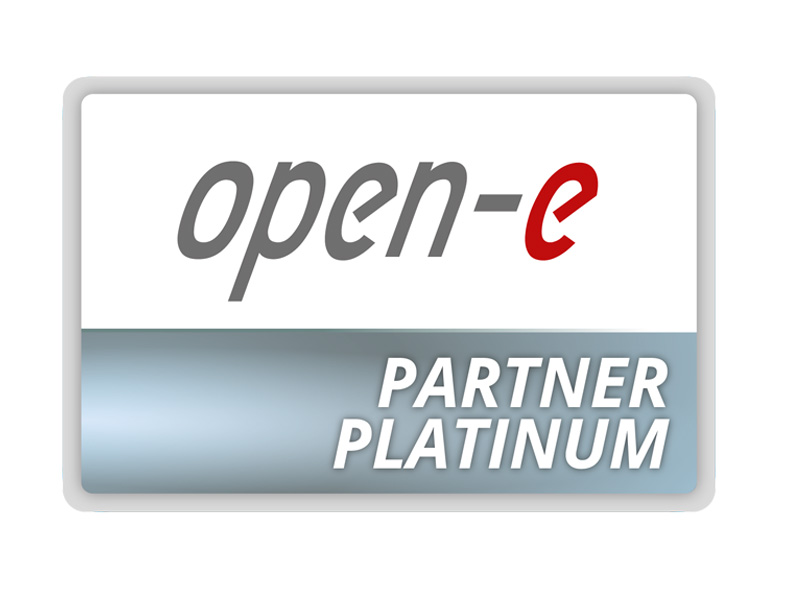ES-8700 iSCSI/NAS Unified Storage with Open-E DSS V7
ES-8700DSS V7 Single System - Overview
- Open-E DSS V7 - End of Life effective November 1, 2024, last order to be placed on October 30, 2024
- iSCSI/NAS Server with Open-E DSS V7
- up to 72 2.5" oder 36 3.5" disks, SAS, SATA and/or SSD, expandable with JBODs
- server with Intel Xeon technology (X10, X11), single or dual socket
- hardware RAID 0, 1, 5, 6, 10, 50, 60 (12 Gbit Areca controller)
- NAS (CIFS, NFS) and iSCSI volumes (opt. also Fibre Channel)
- snychronous volume replication to a second system
- iSCSI/NFS cluster support with automatic failover (2 systems required)
- RAID management with embedded Web GUI (Ethernet Port)
- server management: IPMI 2.0 with KVM support
ES-8700DSS V7 Single System - fully customized for your business
You have questions about the configuration?
Give us a call:
+49 (0) 711 - 70 70 91 70
Product information
With the ES-8700 series based on Open-E DSS V7 EUROstor builds iSCSI and NAS storage solutions, that support snapshots and replication. On the other hand they offer everything that might be expected from welldesigned iSCSI systems: Each server can be provided with its private volumes, in order to build up real SAN networks on an Ethernet.
These systems can optionally be offered with LSI CacheCade Pro 2.0. With this SSDs can be used as read and write cache, which increases I/O-Performance.
ES-8700 can also be configured as cluster, active/active for iSCSI and NFS.
Some models have been certified as a complete system by Open-E. The other models of the series only differ in the configuration.
> Details about the Open-E DSS V7 End of Live
Some important dates and information for you:
- Q4, 2023: In Q4 2023 there will be the last Open-E DSS V7 software update, Up75. After that, no further major updates will be provided.
- October 31th, 2024: This will be the last order date (LOD) for Open-E DSS V7 licenses and support renewals. After this date, you cannot purchase or renew any licenses or support contracts for Open-E DSS V7.
- November 1st, 2024: This will be the end of life (EOL) date for Open-E DSS V7. You can use your existing licenses and support contracts until they expire, but you cannot extend them.
As an alternative, we recommend the current product from Open-E, among others. Open-E JovianDSS is the best choice for your future data storage needs. It is compatible with most hardware components and offers many advanced features that will improve the performance, reliability and scalability of your data storage. We will be happy to advise you in detail!
more Open-E DSS V7 products:
Model overview
| Open-E DSS V7 single system | pdf offer | |||
| EUROstor 8700 Open-E DSS V7 |
| |||
| system architecture |
|
|||
| storage can be used for |
|
|||
| host connection |
|
|||
| iSCSI features |
|
|||
| NAS features |
|
|||
| monitoring / management |
|
|||




